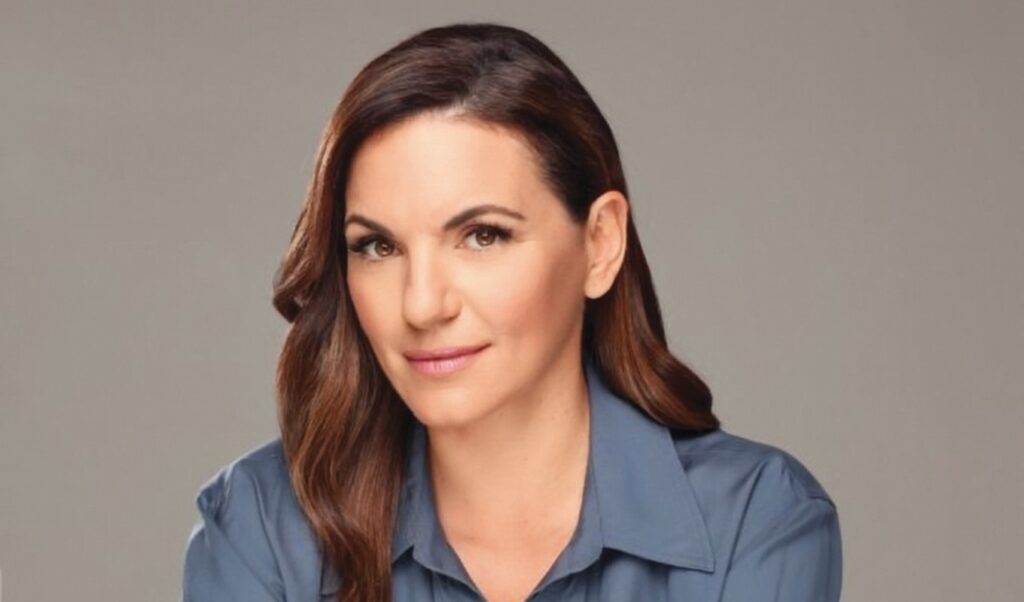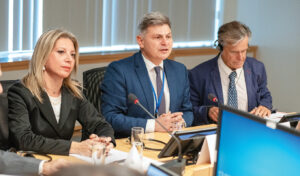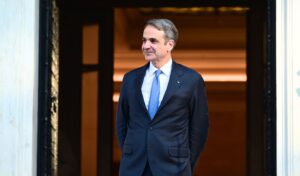“Greece is investing in high value-added tourism, with emphasis on sustainability, diversification and support for human resources”, emphasizes Tourism Minister Olga Kefalogianni in her interview with “Parapolitika” and journalist Kostas Papachlimitzos. Regarding bookings, the Tourism Minister notes that “we observe a change in traveler behavior. Demand is now formed dynamically and we see an increase in last-minute bookings.”
Regarding recent events, concerning the arrival of cruise ships with tourists from Israel to Greek islands, Ms. Kefalogianni clarifies that “targeting people based on their nationality is not a ‘political opinion’. It is pure racism.” “Such behaviors have no place in a democratic country that relies on its legitimacy and international credibility,” she adds.
Full interview of Olga Kefalogianni with Parapolitika
What is the tourism picture this year? What do the first half data show, as well as advance bookings for the second half, both in terms of arrivals and revenues?
After two consecutive record years, both in arrivals and revenues, Greek tourism continues to record high performance. Our consistent position is not to get ahead of ourselves by discounting the course of the year, especially amid multiple international crises and as the peak tourism period is ongoing. Regarding bookings, we observe a change in traveler behavior. Demand is now formed dynamically and we see an increase in last-minute bookings. However, despite global geopolitical and economic instability and certain fluctuations in demand in certain destinations, data for the first five months show, overall, an increase of over 2% in incoming travel traffic, compared to the same period in 2024, while travel revenues also recorded a significant rise of over 12%.
Traffic at the country’s 39 airports during January-June 2025 was also positive, with passenger traffic up 5.2% and aircraft movements up 3.8%. These results confirm the trend of spreading tourism activity in our country beyond the summer peak period, which is a central strategic goal. In any case, we believe that 2025 will be another positive year for Greek tourism. As we have emphasized, however, our primary goal is the sustainable, long-term and quality development of tourism in Greece. We seek to shape a fair and rewarding tourism model, with tourism’s economic benefits returning to local communities and workers.
This year too, many tourism businesses complain that there are thousands of vacant jobs and they cannot find staff to fill them. Is this problem real and what do you plan to do?
The issue of staff shortage in tourism, as in other sectors, concerns not only Greece but many European countries. Tourism relies on the human factor and certainly one of the central pillars of our strategy is supporting and strengthening human resources, which is also connected to enhancing tourism education and training. Through our legislative interventions, we strengthen the operation and administration of tourism education schools while, at the same time, we implement training programs for skills upgrading and reskilling of approximately 20,000 tourism workers and long-term unemployed in various specialties. Simultaneously, with other government-level interventions, we ensure workers’ rights and improve working conditions. For example, we legislatively provided for the construction of special buildings to house workers in hotel accommodations.
At the same time, the Ministry of Labor and Social Insurance declared mandatory the new national sectoral collective labor agreement for the hotel sector, while the implementation of the digital work card in tourism is already delivering significant results, having led to a large increase in declared overtime.
What needs to change, in your opinion, in the Greek tourism product, so that it generates more revenue but is also sustainable long-term?
Our strategy aims at the qualitative development of tourism in our country, with emphasis on substantial diversification of the tourism offer, beyond the traditional “sun and sea” model. For this purpose we promote special forms of tourism, such as winter and mountain tourism, yachting and diving tourism, health and wellness tourism, agrotourism and gastronomic tourism. With resources from the Recovery and Resilience Fund, we finance projects that support these activities, by upgrading infrastructure in tourist ports, ski centers, diving attractions and spa tourism facilities. At the same time, we invest in innovative digital tools aimed at promoting an even more attractive and modern image and identity of Greece as a tourist destination. Our pursuit is to create higher added value for destinations and businesses throughout the country and an authentic and quality experience for every visitor. With respect, of course, for the environment, the place, and with benefit for local communities.
What is your position regarding recent events, concerning the arrival of cruise ships with tourists from Israel to Greek islands?
Let’s be clear: targeting people based on their nationality is not a “political opinion”. It is pure racism. Such behaviors have no place in a democratic country that relies on its legitimacy and international credibility. Greece cannot and must not allow any group to function as a self-appointed vigilante deciding who will disembark and who will not. The instrumentalization of international crises to turn against innocent visitors is a dangerous and superficial act that harms the country’s image. I want my message to be clear: Greece is a safe, hospitable and open country for all visitors, regardless of nationality, religion or beliefs.
Parliament voted for the investigative committee for OPEKEPE, with harsh criticism from the opposition. Can the investigative committee bring results -when almost all previous ones have essentially failed- and what could these be?
The decision to establish an investigative committee was correct and necessary. When there is a case that has caused toxicity and questioning, Parliament must provide the appropriate institutional response. Citizens demand and expect from us complete transparency and political accountability. This is exactly what an investigative committee serves. We need neither to underestimate it nor, obviously, to undermine it, as the opposition does. The challenge is to do the work seriously, without trade-offs and without petty party games. If we get to the bottom of the case, if the gaps that allowed these practices are clarified, then yes, it will have a substantial result.
Published in Parapolitika newspaper




